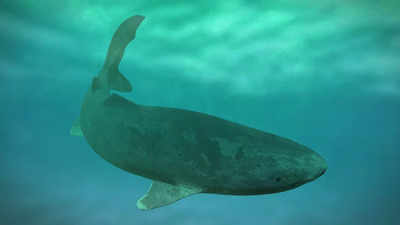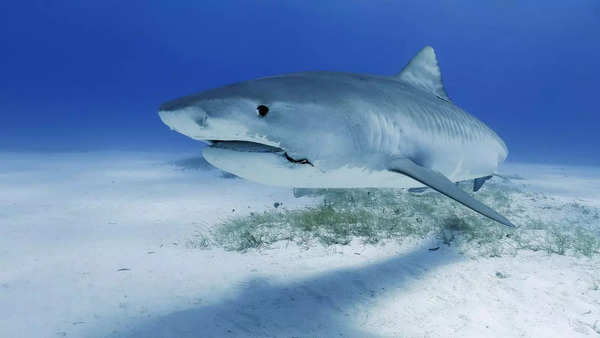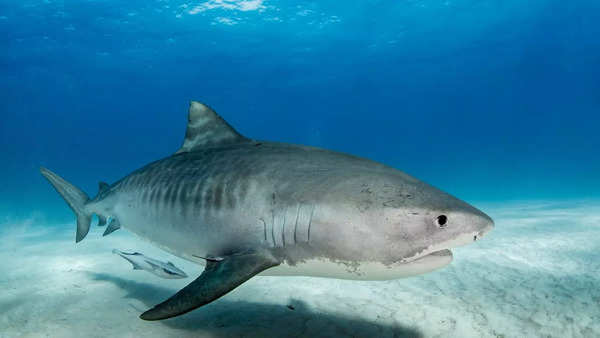Welcome To Latest IND >> Fastest World News
Can you imagine someone alive today who might have lived during the time of William Shakespeare and James I of England? While this seems unimaginable for humans, it might be a reality for another species. The average human lifespan is around 70 years, but there exists a species of shark that can reach an age of 400 years and has an average lifespan of about 272 years.
We are talking about Greenland sharks, which can live upto 400 years, making them the Earth’s
longest-living vertebrates
. These sharks have a very slow rate of growth, about 1 centimeter per year, much slower than other sea creatures like bowhead whales and the Galapagos tortoise, which are also contenders for the title of longest-living creatures. The only other species known to live longer are a type of clam.
Representative Image
These sharks are native to
Arctic waters
, growing to more than seven meters long. With dark gray, black, and brown cylindrical bodies, these sharks resemble submarines and can grow up to 23 feet long and weigh up to 1.5 tons. Due to their slow growth rate, these sharks attain sexual maturity at around 150 years of age. A study on these marine animals used radiocarbon dating to determine their ages. The two largest sharks studied were 493 cm and 502 cm in length and were roughly 335 and 392 years old.
It was observed that these sharks can live in deep waters of about 7,200 feet and can sustain temperatures between minus 2 to 7 degrees Celsius. The sharks’ tissue contains high levels of chemical compounds that act as antifreeze, preventing ice crystals from forming in their bodies. These sharks conserve their energy by swimming at a speed of 1.12 feet per second.
While earlier scientists believed that extreme cold temperatures might be the secret to the longevity of these sharks, recent studies suggest that their almost unchanging metabolism might actually be the reason for their longevity. Scientists observed that Greenland sharks, unlike other animals, do not undergo enzyme degradation. The metabolism of these sharks remains stable, and they don’t degenerate like other animals, which likely contributes to their long lifespans.
Latest IND




